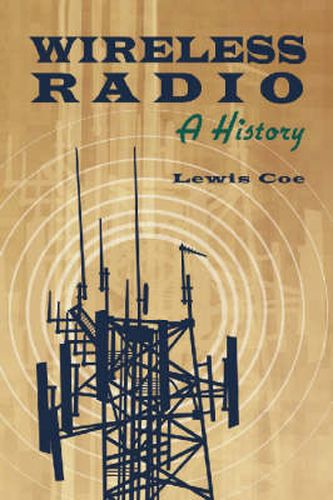Readings Newsletter
Become a Readings Member to make your shopping experience even easier.
Sign in or sign up for free!
You’re not far away from qualifying for FREE standard shipping within Australia
You’ve qualified for FREE standard shipping within Australia
The cart is loading…






This title is printed to order. This book may have been self-published. If so, we cannot guarantee the quality of the content. In the main most books will have gone through the editing process however some may not. We therefore suggest that you be aware of this before ordering this book. If in doubt check either the author or publisher’s details as we are unable to accept any returns unless they are faulty. Please contact us if you have any questions.
In 1873, Scottish physicist James Clerk Maxwell first advanced the idea that there might be electromagnetic waves that were similar to light waves, a startling concept to the scientists of his day. About 13 years later, German physicist Heinrich Hertz demonstrated in his laboratory that electromagnetic radiation did indeed exist. But it was not until after Hertz’s death that a young Italian named Guglielmo Marconi got the idea for a practical communications system based on Hertz’s work. Marconi was surprised and disappointed that the Italian government was not interested in his newly discovered wireless communications system, and thus he took his equipment to England. From that point on, the wireless became identified with Britain. From these beginnings, wireless radio became the basis of a revolution that has resulted in the satellite communications of today. This history first looks at Marconi’s invention and then explores its many applications, including marine radio, cellular telephones, police and military uses, television and radar. Radio collecting is also discussed, and brief biographies are provided for the major figures in the development and use of the wireless.
$9.00 standard shipping within Australia
FREE standard shipping within Australia for orders over $100.00
Express & International shipping calculated at checkout
This title is printed to order. This book may have been self-published. If so, we cannot guarantee the quality of the content. In the main most books will have gone through the editing process however some may not. We therefore suggest that you be aware of this before ordering this book. If in doubt check either the author or publisher’s details as we are unable to accept any returns unless they are faulty. Please contact us if you have any questions.
In 1873, Scottish physicist James Clerk Maxwell first advanced the idea that there might be electromagnetic waves that were similar to light waves, a startling concept to the scientists of his day. About 13 years later, German physicist Heinrich Hertz demonstrated in his laboratory that electromagnetic radiation did indeed exist. But it was not until after Hertz’s death that a young Italian named Guglielmo Marconi got the idea for a practical communications system based on Hertz’s work. Marconi was surprised and disappointed that the Italian government was not interested in his newly discovered wireless communications system, and thus he took his equipment to England. From that point on, the wireless became identified with Britain. From these beginnings, wireless radio became the basis of a revolution that has resulted in the satellite communications of today. This history first looks at Marconi’s invention and then explores its many applications, including marine radio, cellular telephones, police and military uses, television and radar. Radio collecting is also discussed, and brief biographies are provided for the major figures in the development and use of the wireless.